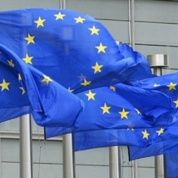By the time civil society organizations realized the maginitude of the trade secrets directive, whch helps companies sue if any protected information leaves their hands, it had already passed the European Council and was well on its way in European Parliament.

Staff at Corporate Europe Observatory told teleSUR that its designated researcher Martin Pigeon had to lobby during extra hours and weekends to fill in an urgent last-minute need for a counteracting voice. With no nonprofit, watchdog group or union approached in drafting the directive, it nearly flew under the radar – at the expense of workers, whistleblowers and journalists alike.
To an unsuspecting citizen or politician not specialized in corporate language, the directive’s constant reference to “innovation” and “protection” may have seemed positive.
OPINION: BRICS Faces External Capitalist Crisis, Growing Internal Strife
“You can get almost anything done with the ‘jobs and growth’ argument in Brussels at the moment,” said Pigeon.
Despite rallying a few nonprofits into signing a letter against its vote, the directive passed nearly unanimously, with even left-leaning parties, in the Parliament’s Legal Affairs Committee on Thursday, a last step before the final vote in the Parliament and Council.
Far from an initiative with wide popular support, the “protection of undisclosed know-how and business information (trade secrets) against their unlawful acquisition, use and disclosure” is a well-planned lobbying initiative. The small working group that drafted the directive had its hand held by two of Brussels’ major lobbying forces: the law firm White & Case and the lobbying consultancy Hill+Knowlton Strategies.
The latter was paid at least US$55,000 to organize the Trade Secrets & Innovation Coalition, whose membership list features some of Brussel’s most intimidating multinationals, including chemicals giant DuPont, cross-sector conglomerate General Electric, and defense and aerospace leader Safran Group. The coalition failed to respond to repeated requests for interview, but according to Pigeon, it convinced the Commission to take on the topic, sent its own legal and academic expertise and helped draft the text.
OPINION: Why Wall Street Won Round One and We Might Win the Next
The high-priced lobbyists succeeded in convincing most voters in the Commission, the Council and two committees that their vote was essential for a well-functioning economy. The rapporteur in the Legal Affairs Committee, Christian Democrat Constance Le Grip, said in a EuroparlTV interview that companies, especially pharmaceutical companies, perfume manufacturers and hedge funds, are threatened by growing “industrial espionage of illicit misappropriation, and of extremely dishonest rogue and malicious competition practices.”
Most acts of “espionage,” said Pigeon, are committed by the National Security Association or the Chinese government, but companies rarely go after them because they lack evidence. The vast majority of cases, then, are brought against employees, and at an exponential rate in the past decades, according to a 2010 study by the law firm O’Melveny & Meyers. Thanks to generous trade secret protections, Wisconsin Medical College was able to sue a cancer researcher in 2013 for sharing his findings with a Chinese university, and PricewaterhouseCoopers went after two whistleblowers and a journalist last year who exposed secret tax structures in the Luxembourg.
Under the language of the directive, though, the “victims” are the companies, who are encouraged to “defend their rights” by suing. They are encouraged not only to claim the cost of direct damages, but also of the financial ramifications in design, product functioning, manufacturing processes or marketing. Targets can also go beyond employees divulging information, but can apply to anyone—affiliated or not—that obtains or uses the information—intentionally or not—up to six years after the “theft.”
OPINION: Attacks on US Public Workers and Unions Intensify
Whistleblowers and journalists are said to be safe because they are excluded from the text, but the unclear, narrow definitions could still be construed to “claim information as a trade secret with a view to circumventing legislation, even when this should by rights be in the public domain,” Julia Reda of the Greens/European Free Alliance told the World Intellectual Property Review.
The vague language may also mean that patients, doctors, researchers and state authorities could be denied requests for public interest disclosures, which could include biomedical research and pesticides studies. Though the directive tries to address job mobility by allowing workers to bring “experience and skills” learned from one job to another, it says nothing about being able to bring knowledge acquired on the job.
Trade secrets are currently regulated by the competition law of each member state, most of which are weaker than the directive. If passed in April by the Parliament and the Council, member states would then have to incorporate its standards as minimum requirements to help streamline rules in the European Single Market.
ANALYSIS: Take the Power Back! Ecuador Takes Lead to Curb Corporate Power
Pigeon also said that it would likely be included in the controversial Transatlantic Trade and Investment Partnership (TTIP), though it already resembles business-friendly U.S. legislation on “economic espionage” soon to be replaced by friendlier bills now in the House and Senate.
Trade secrets exclude patents, but protections both in the directive and in U.S. policy border on intellectual property law. The terminology is so similar, wrote Member of Parliament Michele Rivasi wrote in her opinion to the committee, that it “creates ambiguities and may impact legal interpretations.”
After some tweaks by Parliament on behalf of a panicked wave of lobbying by civil society, the directive “goes to the limits of flexibility” (taken from its introduction), meaning any further changes to the text are blocked. While the Financial Times reported that hedge funds are nervous about weak wording, the directive is overall a victory for multinationals panicking about competition—if competition is understood as the ability to crush a small competitor or employees with a lawsuit.